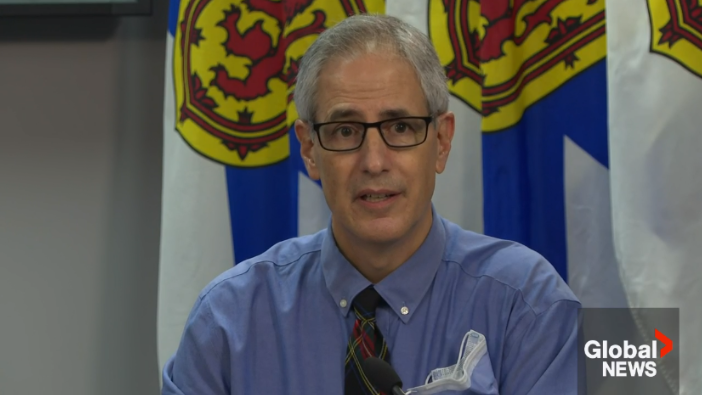A Nova Scotia doctor says respiratory illnesses among children are at “historic levels” as he urged parents to get their children vaccinated against influenza and COVID-19.

“Across the province, from Yarmouth to Sydney and at the IWK, acute care services for children are stretched, stretched, stretched,” said Dr. Andrew Lynk, the chief and chair of pediatrics at the IWK Health Centre.
“These are at historic levels that I’ve never seen before in my career here since 1990.”
Normally, a “very busy” 24-hour shift at the IWK emergency department would have 120 to 140 kids, said Lynk, but that’s grown in recent weeks.
“We’re consistently hitting between 160 to 180, even up to 200,” he said. “Parents are having to wait hours, and hours, and hours, and hours … that causes frustration and moral distress for everybody involved.”

Respiratory syncytial virus, or RSV, is one illness on the rise. Currently, there are 119 known cases, according to a recent provincial report — many in children under the age of six.
COVID-19 still continues to circulate, and the annual flu season is starting about six to eight weeks earlier than usual.
Lynk said there’s been a “perfect storm of viruses all piling up” on each other, and with flu season beginning, “it’s going to get worse before it gets better.”
He estimated that fewer than 10 per cent of children under five have their flu shots, which is a concern.
“It’s this big wave (of influenza) that’s going to cause damage,” Lynk said.
He encouraged parents to get their children up-to-date on both their COVID-19 and flu vaccinations, which are available to children aged six months and up.
“We can prevent some of this – not all of it – but we can prevent some of this,” he said. “Get vaccinated.”
No mask mandates
During the news conference, Dr. Robert Strang, the province’s chief medical officer of health, said Nova Scotia is not reintroducing mask mandates.
He said most infections spread in situations where mask mandates would not apply anyway, like private social gatherings, and said the discussion around mask mandates are a “distraction.”
Instead, he asked Nova Scotians to care for one another and use protective measures, especially in situations where they would be most useful.
This includes wearing a mask in crowded public places and around vulnerable people, such as the elderly.
“I’m asking Nova Scotians to pay attention and to wear masks in this focused, targeted way,” he said.
Most importantly, Strang said people who are sick should stay home.
“I cannot stress this strongly enough — it’s the people who are ill who are infectious,” he said.

The doctor encouraged employers to make it easier for staff to stay home if they’re sick, by being open to remote work and having paid sick days.
He also said employers should stop asking for sick notes, which he described as “an unnecessary pressure on the health-care system.”
If people are sick and are not able to stay home, they should wear a mask, he said.
— with files from Callum Smith




Comments